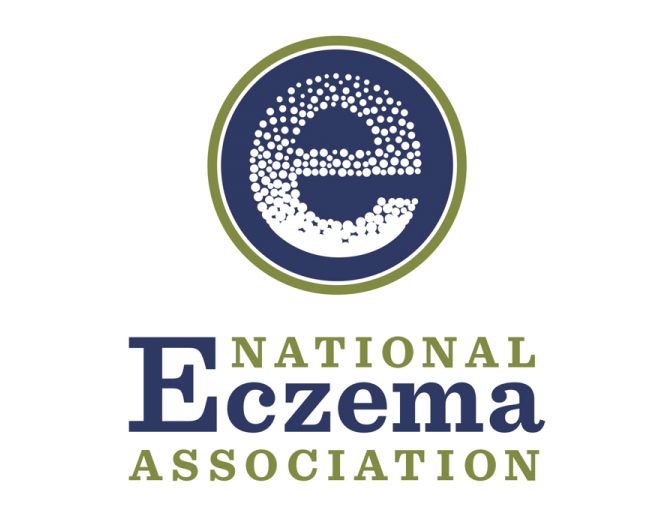Probiotics For Eczema:
A growing number of experts are studying whether probiotics can help eczema sufferers. This video explores some surprising facts about eczema and its possible treatment. Learn about the bacteria responsible for eczema and the benefits of these good bacteria. Then, learn more about the effects of probiotics on your skin. This video will help you determine if probiotics are right for you.

First, probiotics work to boost the immune system.
The lower part of the gut contains 70% of the immune system, so a lower population of Bifidobacteria can cause eczema symptoms. Additionally, studies in infants have found that a decrease in Bifidobacteria has been linked to eczema. Furthermore, exposing children and infants to antibiotics increases the immune response early on.
The researchers from the Royal Children’s Hospital in Victoria examined twelve trials involving 781 participants and determined that probiotics did not reduce symptoms of eczema. The results showed that the placebo did not significantly improve the patients’ quality of life and did not affect their ability to sleep. The study also found that probiotics helped the participants feel more positive and not affect their daily activities. In addition to reducing eczema symptoms, the participants reported increased sleep, improved skin barrier integrity, and increased quality of life.
The study found that probiotics improved symptoms in children with eczema.
Moreover, the number of blood eosinophils decreased as the disease activity increased. In a double-blind, placebo-controlled trial, the researchers discovered that probiotics could improve eczema symptoms. However, these studies do not yet show a definitive cure for the disorder.
The study, conducted on healthy children and adults, concluded that probiotics did not improve the condition of the affected area. The patients did experience reduced scratching, oozing, and dryness. Overall, the study showed improvements in quality of life and the activities of those with eczema. The study’s findings also show that the probiotics did not affect the disease in atopic children.
The study involved participants of different ages and skin conditions. In general, the participants with eczema experienced reduced oozing and scratching of the affected area. In addition, they experienced improved sleep and a higher quality of life and were less likely to suffer from the condition.
In addition, their overall quality of life and the activities they engaged in were also improved. The study further suggested that probiotics might benefit eczema symptoms, although this has not been proven in practice.
The study was conducted on both mom and baby.
While the mom received probiotics during her pregnancy, the babies were given the supplements at six months. The researchers found that probiotics reduced the size of the affected area and the incidence of eczema. In addition, the probiotics significantly improved the participants’ sleep, quality of life, and the activities of their skin. They also improved their overall immune system and quality of life.
The study examined the effects of probiotics for eczema. The researchers analyzed the effects of different strains of bacteria on the symptoms of eczema. They concluded that probiotics reduced the prevalence of eczema in children given Lactobacillus rheamnosus. They concluded that the probiotics did not affect eczema in the children.
In a randomized controlled trial, a group of eczema sufferers was given probiotic supplements for six weeks. The probiotics significantly reduced the severity of their symptoms. In addition to treating eczema, probiotics are beneficial to overall health. They may help improve the skin’s barrier function. They may also improve the skin’s immune system.
The most effective probiotic supplements for eczema contain the strains of Lactobacillus rhamnosus that are highly resistant to eczema. These strains are also highly effective for reducing the staphylococcus bacteria in the skin. The supplements are best taken in combination with water or a milk product. They are safe and effective for eczema and should not be discarded unless they have worked well for you.
The researchers found that probiotics reduced the severity and area affected by eczema.
They also experienced a decrease in oozing and scratching of their skin. The study suggested that probiotics could be effective against eczema symptoms, although more research is needed to support this claim. This systematic review examined twenty-eight studies on probiotics for eczema and concluded that the treatment successfully reduced itching, redness, dryness, and inflammation.
In a randomized controlled trial conducted with infants who had been diagnosed with eczema using the SCORAD measurement system, researchers gave half of the participant’s Lactobacillus rhamnosus and the other half a placebo for six weeks. The group that received probiotic supplements experienced a more significant reduction in SCORAD scores than the group that did not receive them.
In another study, researchers gave participants Lactobacillus rhamnosus and looked at how it affected their eczema symptoms. They concluded that the probiotics reduced redness and itching of the affected area and improved sleep and overall quality of life.
This study suggested that Lactobacillus may reduce inflammation in atopic dermatitis or eczema. In addition, they may improve skin hydration and help protect against oxidative damage.
An American study first examined the effects of several strains of bacteria on eczema. They concluded that Lactobacillus rhamnosus strain GG (LGG) decreased the eczema symptoms of children given probiotics for six months.
The most resistant type of bacteria used to treat skin conditions is Lactobacillus rhamnosus, which successfully treats people with eczema. It also helped reduce other types of inflammation and so-called “leaky gut syndrome“. A leaky gut syndrome is when holes in the intestinal lining cause toxins and allergens to seep into the bloodstream. Due to gluten intolerance, food allergies, eating disorders, or even stress, people could develop this condition.
The beneficial strains of bacteria can be ingested through supplements or in pill or capsule form. They are also available in yogurts, beverages, and energy bars. The products can be found in health food stores, online retailers, and pharmacies. These supplements are safe to take for children who have eczema too.
The bacteria strains that treat skin conditions are the same ones that produce healthy microorganisms inside your body’s digestive system.
They help improve digestion, increase nutrient absorption, prevent infections, support immune function, provide antioxidant activity, reduce inflammation, boost the skin’s barrier functions, decrease allergic reactions, promote proper growth and development of children’s bodies, including their brains, strengthen teeth clarity plus strength & overall gum health, provide mental clarity support to keep your mind sharp & cognition levels maintained as you age, and even prevent illness & disease.
One issue to note is that the strains of bacteria found in these supplements are not the same as those used for probiotic yogurt or fermented foods. The latter two can help foster good health, but their purpose is different from curing eczema.
For example, they boost immune function and may help you fight off a stomach bug or infection if consumed during an episode of sickness. They also promote proper digestion to keep your gut working properly and boost nutrient absorption from the food you eat, which helps maintain healthy body weight.
That said, it’s essential to eat a diet full of fiber-rich fruits, vegetables, legumes, whole grains, nuts, seeds, low-fat organic dairy, eggs, lean protein, and healthy fats like avocados to get the most out of these foods.
Avoid inflammatory ingredients that may aggravate your skin condition or cause a breakout. These include dairy products with high levels of lactose, gluten, sugar, processed meats with nitrates, additives, and unhealthy oils.
Common triggers for eczema include fragrances found in soaps, lotions, perfumes, household cleaners, dryer sheets, detergents, fabric softeners, wool clothing or blankets, plus bedding made from natural cotton.
In addition to avoiding those things which trigger eczema symptoms as much as possible, you can manage how bad your symptoms are by limiting activity during flare-ups. If the skin becomes dry and irritated, it will become uncomfortable to move around. In those cases, avoid strenuous exercise, which can worsen the condition.
In most cases, the skin heals naturally over time with proper patience. However, you can speed up that process by using moisturizers. Choose those that are specially formulated for sensitive skin types, hypoallergenic, fragrance-free, non-comedogenic (will not clog your pores), and includes ceramides that help restore a healthy moisture barrier function on the top layer of skin.
Apply these products after bathing or showering while your skin is still damp to trap moisture before it evaporates into the air. You can also opt to use ointments instead, which provide more intense hydration due to the higher levels of active ingredients and oils.
Avoid hot water when bathing and use cooler water to help soothe dry skin from eczema flare-ups.
A handheld showerhead delivers a finer mist of water, prevents dry skin or eczema from forming by keeping your skin moisturized, and decreases the risk for breakouts and acne flare-ups that may be triggered by using hard sprays from traditional showerheads.
To reduce inflammation on redness, irritation, itchiness, burning sensations, or discomfort caused by eczema symptoms on any area of your body, first soak in a warm bath for about 10 minutes. Then apply a soothing moisturizer or ointment to your skin once it’s completely dry after patting yourself down with a towel.
Conclusion: Researchers are still studying the effects of probiotics on eczema, but there is evidence that they could be beneficial. If you want to try taking probiotics to see if they help your eczema, make sure to talk to your doctor first. Probiotics can have other benefits for your health, so it’s a good idea to start taking them even if you don’t have eczema. Have you tried taking probiotics for your eczema?


